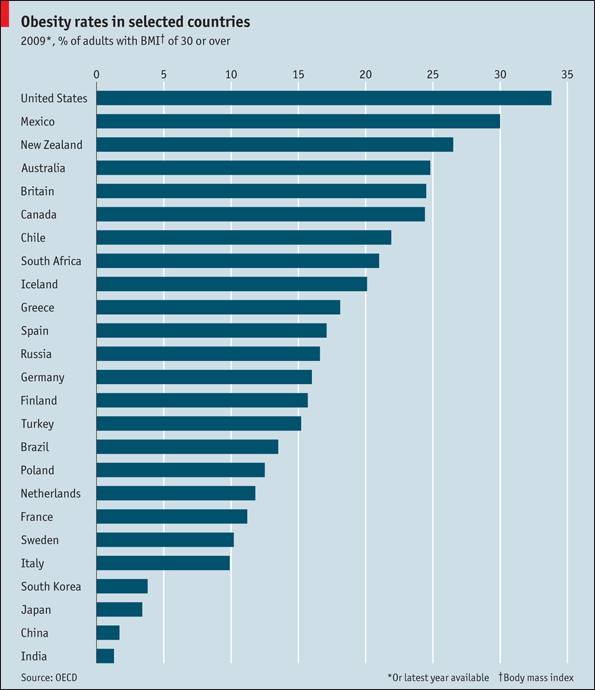Angela
Elite member
- Messages
- 21,823
- Reaction score
- 12,328
- Points
- 113
- Ethnic group
- Italian
Everything I've ever read about obesity indicates that it is a function of calories in versus calories out. If you eat more than you expend you get fat. Lately, with things like the Paleo diet or the Keto diet, the big enemy is carbs.
If all of that is true, how do we explain this:

It must be incorrect, yes? Either that or Italians have some magic anti-fat gene.
Now, different studies will show different percentages because of differences in how it is measured, samples etc., but Italy is always among the least obese.


What's going on?
If all of that is true, how do we explain this:

It must be incorrect, yes? Either that or Italians have some magic anti-fat gene.
Now, different studies will show different percentages because of differences in how it is measured, samples etc., but Italy is always among the least obese.


What's going on?

